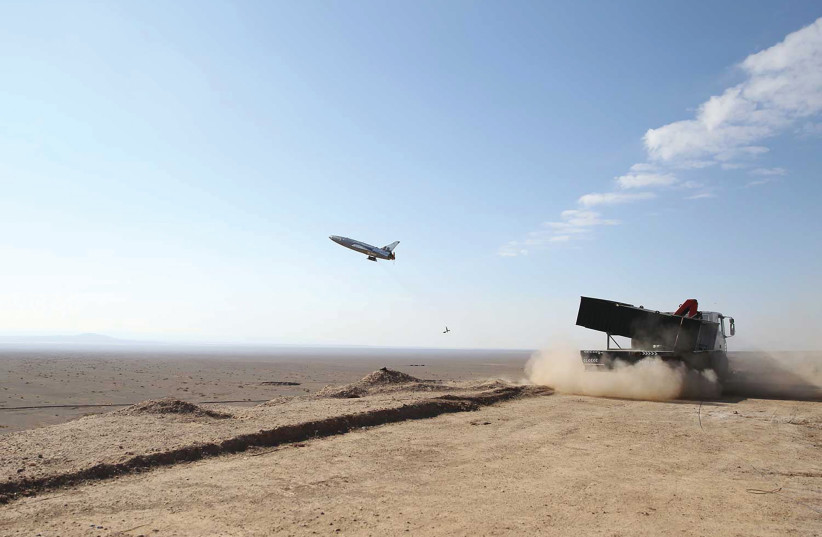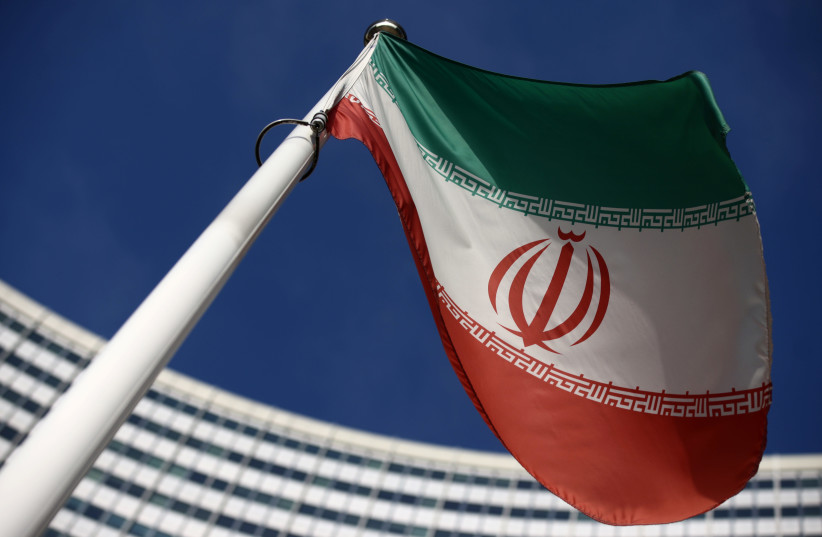“Make no mistake: the United States of America will protect and defend its citizens, including those serving the United States now and those who formerly served,” said US National Security Advisor.
LAHAV HARKOV

There will be repercussions if Iran threatens and attacks Americans, including those Iran sanctioned, the White House warned on Sunday.
“Make no mistake: the United States of America will protect and defend its citizens. This includes those serving the United States now and those who formerly served,” Sullivan said in a statement. “As Americans, we have our disagreements on politics. We have our disagreements on Iran’s policy. But we are united in our resolve against threats and provocations. We are united in the defense of our people.”
Tehran sanctioned 51 Americans for the 2020 killing of Iranian Revolutionary Guard Corps commander Qassem Soleimani in a drone strike. The sanctions announced on Saturday included Americans it claimed were engaged in “terrorism”, including US General Mark Milley, chairman of the Joint Chiefs of Staff and former White House national security adviser Robert O’Brien.
cnxps.cmd.push(function () { cnxps({ playerId: ’36af7c51-0caf-4741-9824-2c941fc6c17b’ }).render(‘4c4d856e0e6f4e3d808bbc1715e132f6’); });
Sullivan pointed out that the sanctions came as Iran’s proxy militias continue to attack American troops in the Middle East, and Iranian officials threaten to carry out terror attacks in the US and around the world.
“We will work with our allies and partners to deter and respond to any attacks carried out by Iran,” Sullivan added. “Should Iran attack any of our nationals, including any of the 52 people named yesterday, it will face severe consequences.”

Negotiations for Iran and the US to return to the 2015 Joint Comprehensive Plan of Action nuclear deal continued on Sunday, with the European delegations meeting with Iran’s chief negotiator Ali Bagheri Kani.
Russia’s chief negotiator, Ambassador Mikhail Ulyanov, said he “share[s] the assessment” by the Iranians that the sides are starting to overcome their differences on the matter of sanctions.
“Progress is being made. But achieving the desired solution will require additional time and effort,” Ulyanov tweeted.
The talks in Vienna are currently in their eighth round.
The JCPOA limited Iran’s nuclear program, while gradually lifting sanctions. In recent years, Iran has worked on developing uranium metal and enriching uranium to 60%, far beyond the JCPOA’s restrictions and closer than ever to weapons-grade uranium, which is enriched to 90%.
Iran continued its JCPOA violations during its talks with Vienna, which were renewed on November 29, launching advanced centrifuges. Western parties to the talks with Iran – France, Germany, and the UK directly, and the US indirectly – have repeatedly questioned the Islamic Republic’s seriousness in engaging in the talks and have said they will not allow them to drag on.
Iran denied a report that it had reached a two-year interim nuclear agreement with world powers on Sunday.
London-based Rai al-Youm reported that the sides completed a two-year deal in Vienna, by which the US would lift all sanctions placed on Iran by the Trump administration.
In return, all of Iran’s advanced uranium would be transported to Russia.
Russia would reportedly serve as the guarantor of the agreement, in that it would return the uranium to Iran in the event of the US leaving the deal as it did in 2018.
“The report is totally wrong and fake,” a source close to the Iranian negotiating team said, according to Iranian journalist Abas Aslani.
Iranian Supreme Leader Ayatollah Ali Khamenei gave a speech on Sunday in which he referred obliquely to the Vienna talks.
“Not surrendering to an arrogant enemy is one of the principles of the revolution,” Khamenei said. “To negotiate, discuss, or sometimes interact with the enemy is another matter…We have not surrendered until today, and God willing, this will be the case in the future.”
Tovah Lazaroff contributed to this report.
Content retrieved from: https://www.jpost.com/middle-east/iran-news/article-692011.